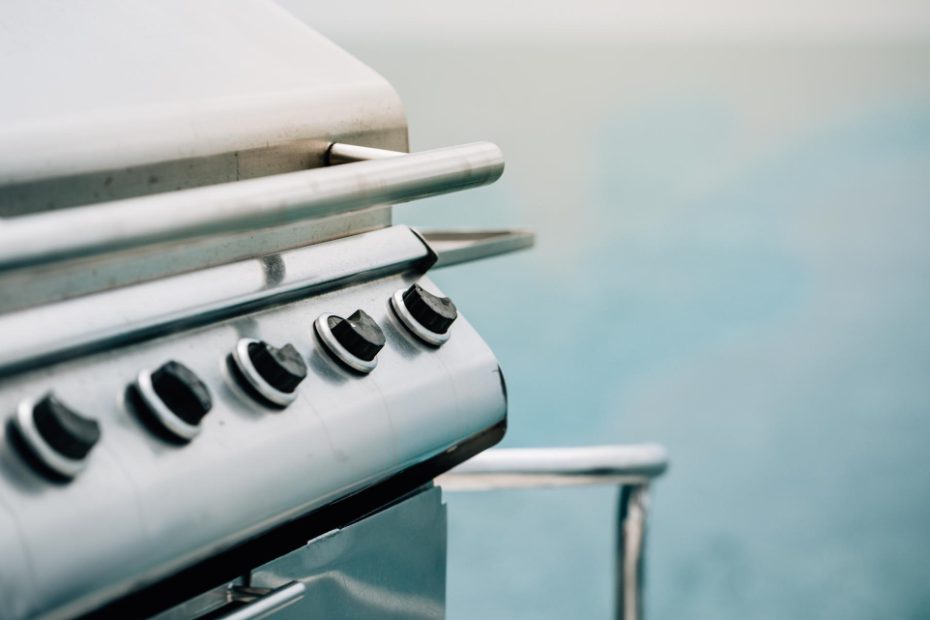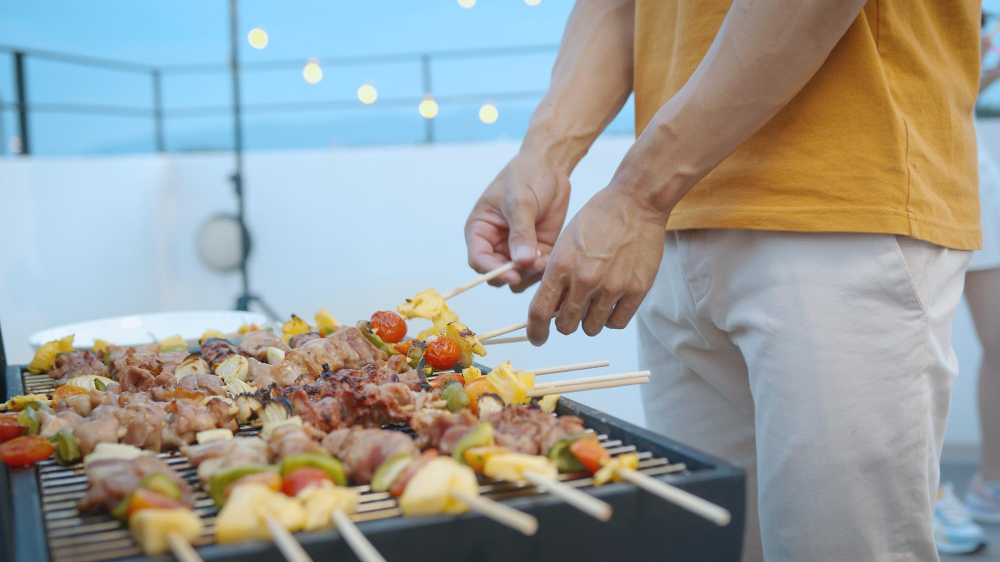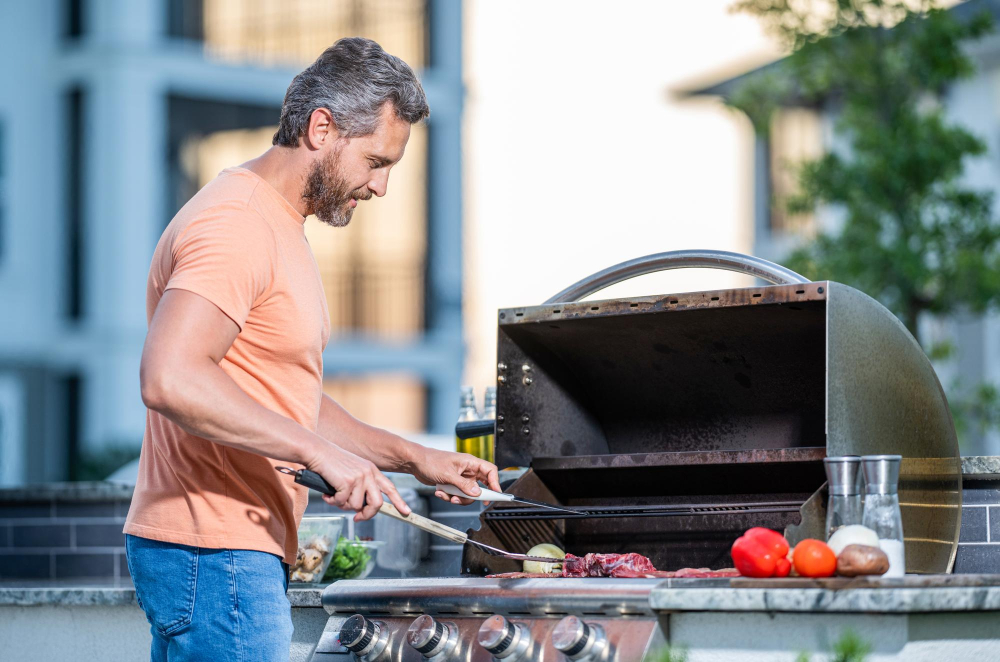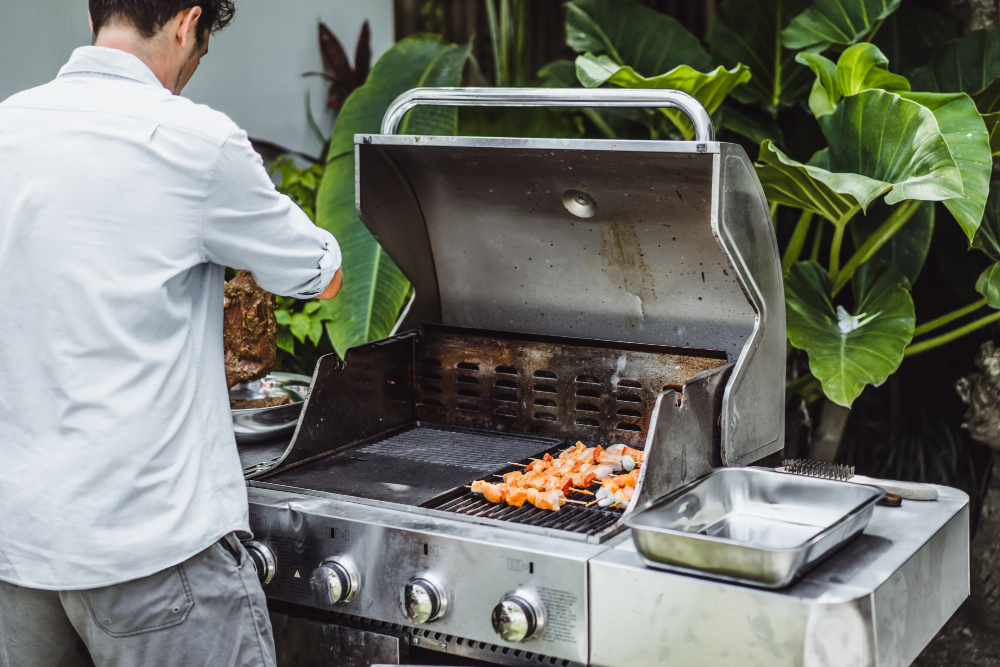How long should a gas BBQ last?
In the UK, summer is often synonymous with barbecues. Whether it’s a small gathering in the back garden or a larger outdoor event, firing up the grill is a popular way to enjoy good food and great company. If you’re a fan of gas barbecues, you may be wondering how long you can expect your trusty grill to last. In this article, we’ll explore the lifespan of gas BBQs and factors that can affect their longevity.
Factors affecting the lifespan of a gas BBQ
The lifespan of a gas BBQ can vary depending on several factors. Here are some key considerations:
- Quality: The quality of the BBQ itself plays a significant role in its lifespan. A well-built, durable gas BBQ made with high-quality materials is likely to last longer than a cheaper, less sturdy alternative.
- Maintenance: Regular maintenance and proper cleaning can extend the life of your gas BBQ. Keeping it clean, checking for any signs of wear and tear, and performing routine maintenance tasks will help prevent issues and prolong its lifespan.
- Frequency of use: How often you use your gas BBQ can impact its longevity. If you’re an avid griller who uses the BBQ frequently throughout the year, it may not last as long as one that is only used occasionally during the summer months.
- Climate: The weather conditions in your area can also affect the lifespan of your gas BBQ. Exposure to harsh elements such as rain, snow, and extreme temperatures can cause rusting, corrosion, and other damage over time.
Typical lifespan of a gas BBQ
While there is no set expiration date for a gas BBQ, the average lifespan can range from 5 to 15 years. This estimation is based on the aforementioned factors and can vary depending on how well the BBQ is maintained.
“With proper care and maintenance, a high-quality gas BBQ can last for many years, providing you with countless delicious meals and memorable gatherings.”
It’s important to note that the components of a gas BBQ may have different lifespans. For example, the burner and ignition system may need replacement after several years of use, while the body and grill grates can last longer if well-maintained.
Tips to extend the life of your gas BBQ
If you want to maximize the lifespan of your gas BBQ, here are some tips to keep in mind:
- Clean it regularly: Remove any grease or food residue after each use to prevent build-up.
- Protect it from the elements: Consider covering your gas BBQ when not in use to shield it from rain, snow, and direct sunlight.
- Inspect for wear and tear: Regularly check for any signs of damage, such as rust or corrosion, and address them promptly.
- Store it properly: If you’re not planning to use your gas BBQ for an extended period, make sure to store it in a cool, dry place.
In conclusion
While the lifespan of a gas BBQ can vary depending on factors such as quality, maintenance, frequency of use, and climate, with proper care and maintenance, you can expect your gas BBQ to last for many years. By following the tips mentioned above and investing in a well-built grill, you’ll be able to enjoy countless delicious BBQs and create lasting memories with family and friends.
How often should you replace your gas grill?
Gas grills are a popular choice for outdoor cooking in the UK, offering convenience and versatility. However, like any other appliance, gas grills have a limited lifespan and may need to be replaced over time. So, how often should you replace your gas grill? Let’s dive into some factors to consider.
Quality and durability
The quality and durability of your gas grill play a significant role in how long it will last. High-quality grills made from durable materials tend to have a longer lifespan compared to cheaper, lower-quality models. Generally, a well-maintained gas grill can last anywhere from 5 to 15 years.
Frequency of use
The frequency of use also affects the lifespan of your gas grill. If you use your grill frequently, especially during warmer months, it may experience more wear and tear, which can shorten its lifespan. On the other hand, if you only use your grill occasionally, it may last longer.
Maintenance and cleaning
Proper maintenance and regular cleaning can significantly extend the lifespan of your gas grill. Regularly inspecting and cleaning the burners, grates, and removing grease buildup can help prevent corrosion and ensure optimal performance. Follow the manufacturer’s instructions for specific maintenance guidelines.
Signs it’s time to replace
While there is no definitive rule for when to replace your gas grill, certain signs indicate it may be time for a new one. These include:
- Corrosion: Excessive rust or corrosion that cannot be repaired.
- Uneven heat distribution: If the grill consistently heats unevenly, it may be a sign of burner issues.
- Gas leaks: If you smell gas or notice a leak, it’s crucial to replace the grill immediately for safety reasons.
- Worn-out parts: When replacement parts become challenging or expensive to find, it might be more cost-effective to invest in a new grill.
Remember, regular maintenance and proper usage can help extend the lifespan of your gas grill.
In summary, the lifespan of a gas grill depends on various factors such as quality, frequency of use, and maintenance. While a well-maintained gas grill can last up to 15 years, signs of corrosion, uneven heating, gas leaks, or difficulty finding replacement parts indicate it may be time for a replacement. Regular cleaning and maintenance are essential to ensure optimal performance and longevity of your gas grill. So, take good care of your grill and enjoy many delicious BBQs ahead!
Is it worth repairing a gas grill?
Gas grills are a popular choice for outdoor cooking in the UK, offering convenience and versatility. However, like any appliance, gas grills can sometimes break down or develop issues over time. When faced with a faulty gas grill, many people wonder if it’s worth repairing or if they should invest in a new one. Let’s explore the factors to consider when deciding whether to repair or replace your gas grill.
The Age of Your Grill
The age of your gas grill is an important factor to consider. If your grill is relatively new, repairing it might be a cost-effective solution. However, if your grill is several years old and has been plagued with recurring problems, it may be more economical in the long run to replace it.
The Cost of Repairs
Assessing the cost of repairs is crucial in determining whether to repair or replace your gas grill. If the repair costs are significantly lower than the price of a new grill, it may make sense to fix the existing one. On the other hand, if the repairs are extensive or require expensive replacement parts, it might be more practical to invest in a new grill.
The Condition of the Grill
Consider the overall condition of your gas grill. If it has been well-maintained and only requires minor repairs, it could be worth fixing. However, if your grill is showing signs of significant wear and tear, such as rusted parts or a damaged burner, it might be better to invest in a new one for safety reasons.
The Value of Upgrades
If you’ve been considering upgrading your grill or adding new features, a repair might be the perfect opportunity to do so. Many repairs can also include upgrades such as replacing old burners with more efficient ones or incorporating additional accessories. This can provide added value and extend the lifespan of your grill.
“Repairing a gas grill can be a cost-effective solution for minor issues, but it’s important to assess the age, cost of repairs, condition, and potential for upgrades before making a decision.”
In conclusion, whether it’s worth repairing a gas grill depends on various factors such as its age, repair costs, condition, and personal preferences regarding upgrades. It’s recommended to evaluate these factors before making a decision. If the repairs are minor and cost-effective, repairing the grill may be a good option. However, if the grill is old, extensively damaged, or the repairs are costly, it might be more practical to invest in a new grill that meets your current needs and preferences.
Do Weber grills rust?
When it comes to outdoor grilling, Weber is a renowned brand known for producing high-quality grills that stand the test of time. However, like any other grill, Weber grills are not immune to rust. Rusting can occur due to various factors such as exposure to moisture, extreme weather conditions, and improper maintenance.
Why do Weber grills rust?
Rusting typically occurs on the cooking grates, burners, and other metal components of the grill. The main contributor to rust formation is moisture. If the grill is left uncovered or exposed to rain, dew, or even high humidity levels, water can seep into the metal, leading to oxidation and rust formation.
Another factor that can cause rusting is the accumulation of grease and food residue on the grill. Over time, if these residues are not properly cleaned, they can create a corrosive environment that accelerates rust formation.
Preventing rust on Weber grills
To preserve the longevity of your Weber grill and prevent rust formation, it is essential to follow a few simple maintenance steps:
- Clean your grill regularly: Scrub the cooking grates and remove any grease or food residues after each use.
- Keep your grill covered: Invest in a high-quality grill cover to protect your Weber grill from rain, snow, and other harsh weather conditions.
- Avoid using abrasive cleaning tools: Use soft brushes or non-abrasive sponges to clean your grill to prevent scratching the metal surfaces.
- Apply a protective coating: Consider applying a thin layer of cooking oil or grill protectant to the metal components of your grill to create a barrier against moisture.
Remember, prevention is better than cure. By taking proper care of your Weber grill, you can significantly reduce the risk of rust formation and ensure its longevity.
If rust has already formed
If you notice rust on your Weber grill, it’s important to address the issue promptly to prevent further damage. Here are some steps you can take:
- Scrub off the rust: Use a wire brush or sandpaper to remove the rust from the affected areas.
- Apply rust converter: Apply a rust converter product to halt the progression of rust and convert it into a stable compound.
- Re-paint or re-season: Depending on the severity of the rust, you may need to repaint or re-season the affected areas of your grill.
Regular maintenance and proper care can go a long way in keeping your Weber grill rust-free and ensuring optimal performance for years to come.
How can I make my gas grill last longer?
If you want to save money and extend the lifespan of your gas grill, it’s important to take proper care of it. By following a few simple maintenance tips, you can ensure that your grill continues to serve you well for many years to come.
Clean Your Grill Regularly
Regular cleaning is essential to keep your gas grill in top condition. After each use, scrape off any food residue with a wire brush. It’s also a good idea to deep clean your grill at least once a year. Remove the grates and burners, and scrub them thoroughly with soapy water. Rinse and dry before reassembling.
Protect Your Grill
Investing in a grill cover is an excellent way to protect your gas grill from the elements. It will shield it from rain, snow, and harsh UV rays, preventing rust and corrosion. Make sure to clean and dry your grill before covering it to avoid mold and mildew growth.
Check for Leaks
Regularly inspect your gas grill for any signs of leaks. Apply a mixture of water and dish soap to the connections and hoses, then turn on the gas. If you see bubbles forming, there may be a leak. In this case, tighten or replace the faulty parts immediately.
Replace Worn-out Parts
Over time, certain parts of your gas grill may wear out and need replacement. The most common components that require regular inspection and replacement include burners, grates, igniters, and hoses. Check these parts periodically and replace them when necessary to ensure optimal performance.
Remember, regular maintenance and care are key to making your gas grill last longer.
Here is a quick checklist to help you keep your gas grill in great shape:
- Clean your grill after each use with a wire brush and deep clean it at least once a year.
- Invest in a grill cover to protect your grill from the elements.
- Regularly check for gas leaks by applying a soap and water solution to connections.
- Replace worn-out parts such as burners, grates, igniters, and hoses as needed.



